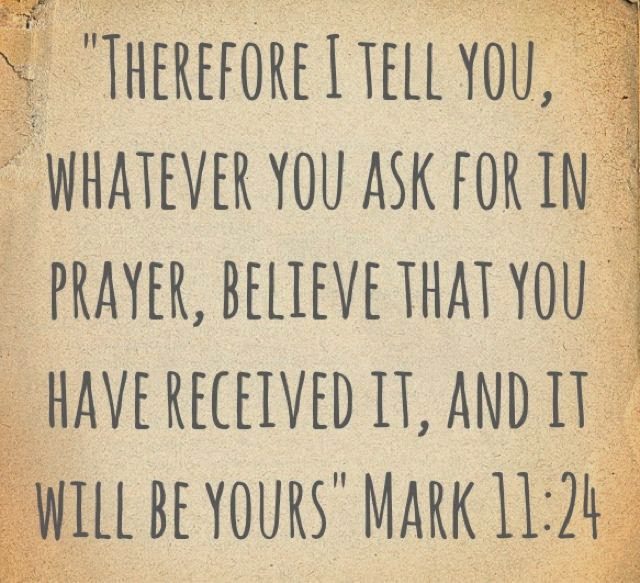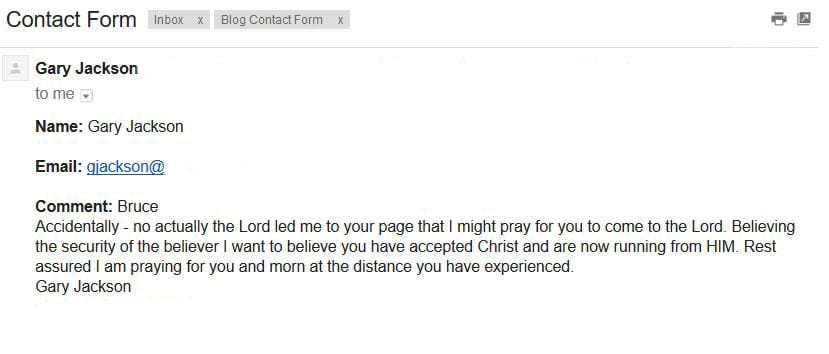
I watched The Iceman — a film detailing the life of notorious hitman Richard Kuklinski. Kuklinski, played by Michael Shannon, is suspected to have killed over two hundred people between 1946 and 1986. One scene in the movie details Kuklinski’s murder of porn producer Marty Freeman (played by James Franco).
I am always on the lookout for mentions of religion when watching movies or TV programming. The Iceman has a poignant scene in which the Christian God plays a prominent part. Kuklinski, a lapsed Catholic, drives to where Freeman lives, planning to kill him. Let’s pick up the dialog at the point (38:27) where Freeman realizes Kuklinski plans to whack him.
Freeman calls Josh Rosenthal, the mobster who hired Kuklinski to kill him. Freeman wrongly thinks that they have worked out their differences, thus avoiding the need for Kuklinski to shoot him. Kuklinski takes the phone, has a brief conversation with Rosenthal, and says okay.
Kuklinski pulls out his gun . . .
Freeman: What the fuck’s going on?
Kuklinski: He changed his mind.
Freeman: No, no, no, Rosenthal is my best friend. I would never say anything.
Kuklinski: Not my problem.
Freeman: No, no, no, please God no. Please . . .
Kuklinski: What, you praying?
Freeman: God, please, God, please . . .
Kuklinski: You really believe that? You think God will come down and save you?
Freeman, face buried in a couch, continues to pray and weep . . .
Kuklinski: All right, I’ll give you some time. Pray to God. Tell him to come down and stop me.
Freeman gives Kuklinski an incredulous look and then goes back to praying.
Kuklinski: Our Father,
Freeman starts praying The Lord’s Prayer . . .
Kuklinski: Harder (looks at his watch)
Kuklinski: I’m not feeling nothing.
Long pause as Freeman continues to frantically pray . . .
Kuklinski: Nothing at all
Kuklinski: Harder
Freeman, exasperated, throws up his hands and says WHAT!? I . . .
Kuklinski: This is your last chance.
Kuklinski stands and moves to where Freeman is praying. Freeman turns his head, lifting his hands . . .
Freeman: No, no, no
Kuklinski: I think God is busy.
And with that Kuklinski kills Freeman with a derringer shot to the heart.
I think God is busy. Does this not reflect the feeling that millions and millions of desperate people will have today as they pray to the Christian God, hoping that he will come to their rescue? Despite their passionate prayers to the God who supposedly holds the universe in the palm of his hand and promised to never leave or forsake them, all they hear is deafening silence. No matter the circumstance or calamity, all Christians hear is a fast beeping sound and a recording that says, please try again later. And so these devoted followers of Jesus continue day after day, month after month, and year after year, to pray to their God, thinking that someday he will bring deliverance, healing, or blessing. Yet, in the end, God fails to deliver on what he promised. He fails in every way possible, yet the faithful still hang on, believing, much like people playing the lottery, that their big prayer payout is just around the corner.
I have written a number of posts on prayer and God’s supposed care for Christians:
A Few Thoughts on a Lifetime of Praying to the Christian God
Prayer: Explaining the Unexplainable
How Many Prayers Does it Take to Stop a Hurricane?
If the Christian God is indeed the sovereign of the universe, a prayer-answering God, and the Father of all who call on his name, he sure is piss-poor at his job. In baseball, there is something called the Mendoza Line. The Mendoza Line, named after a poor-hitting professional baseball player Mario Mendoza, is the line a hitter falls below when his batting average drops below .200. No major league batter wants to drop below the Mendoza line. The Mendoza line is the “offensive threshold below which a player’s presence on a Major League Baseball team cannot be justified, regardless of his defensive abilities. The term is used in other contexts when one is so incompetent in one key skill that other skills cannot compensate for that deficiency.” (Wikipedia)
Think of all the prayers you prayed as a Christian. How many of those prayers did God answer? None of this God answers every prayer: yes, no, later, bullshit. None of this, we won’t know until we get to Heaven how many of our prayers God answered. None of this, God works behind the scenes, answering prayers without leaving proof of his actions. The Bible presents God as a mighty prayer-answering deity; a God who daily meets the needs of his followers. Yet, when pressed for examples of God miraculously answering their prayers, Christians are left with appealing to God meeting the more mundane needs of their lives. True, earth-shattering answers to prayers are scarce. Be honest, Christians. How many of your supposedly answered prayers can be verifiably attributed to your God? During our deconversion from Christianity, Polly and I went back over our fifty years of praying to the Christian God. We prayed tens of thousands of prayers (over 100,000 prayers between us), yet “answers” that couldn’t be explained through circumstance or human instrumentality fit on a few fingers. We concluded that God was batting below the Mendoza line, so much so that we realized that he did not exist. Hanging our belief in his existence on a handful of unexplainable events was not enough for us to cling to our faith. We concluded we live in a world shaped by randomness, natural forces, and human action — sans God.
In 1 Kings 18, we find the story of the prophet Elijah challenging the prophets of Baal to a God duel. Elijah proposed:
Now therefore send, and gather to me all Israel unto mount Carmel, and the prophets of Baal four hundred and fifty, and the prophets of the groves four hundred, which eat at Jezebel’s table.
….
Then said Elijah unto the people, I, even I only, remain a prophet of the Lord; but Baal’s prophets are four hundred and fifty men. Let them therefore give us two bullocks; and let them choose one bullock for themselves, and cut it in pieces, and lay it on wood, and put no fire under: and I will dress the other bullock, and lay it on wood, and put no fire under: And call ye on the name of your gods, and I will call on the name of the Lord: and the God that answereth by fire, let him be God. And all the people answered and said, It is well spoken.
As can be expected, the prophets of Baal lost this God-duel. The Christian God sent fire down from Heaven and consumed Elijah’s sacrificial offering. Awesome story, right (besides Elijah murdering all the prophets of Baal)? Elijah prayed a prayer sixty-three words long. One prayer, sixty-three words was all it took for God to prove his existence and vindicate his prophet by supernaturally turning a water-drenched cow into a burnt roast! Yet, Christians will utter millions of words in prayer to their God today with nary a spark from Heaven. What gives?
My favorite part of this story is when Elijah mocks the prophets of Baal, saying:
And it came to pass at noon, that Elijah mocked them, and said, Cry aloud: for he is a god; either he is talking, or he is pursuing, or he is in a journey, or peradventure he sleepeth, and must be awaked.
In modern parlance, Elijah said: Where’s your God, Christians? He must be on his smartphone talking, in the bathroom taking a shit, on vacation, or taking a nap.
Now, Christians see this story from the perspective that the one true God, the Christian God, the God of the Bible, is indeed a prayer-answering God. Yet, when pressed for similar stories from their own lives, Christians have few, if any, tales of the miraculous to share. Perhaps, then, as Evangelicals-turned-atheists have concluded, the Christian God must be on his smartphone talking, in the bathroom taking a shit, on vacation, or taking a nap. In other words, the Christian God doesn’t exist. An argument can, perhaps, be made for an indifferent deistic God; a deity who set everything in motion and said, there ya go, do with it what you will; a God who has no interest in what is happening on planet earth, save helping Denver Broncos quarterback Russell Wilson “cook” or telling Granny where her keys are. Christians, then, are left with looking for God in the gaps or life’s minutia. When it comes to lightning-level answered prayers, God is impotent and silent; so much so that surely Christians can’t fault atheists and agnostics when they say, prove your God exists. It is not enough to speak of an ancient man named Jesus being resurrected from the dead. There’s no evidence that such a claim is true. What’s needed is a supernatural resurrection of someone such as Abraham Lincoln or Gandhi. Does not the Bible say, nothing is too hard of God? If Elijah can demand the prophets of Baal put up or shut up, can atheists and other non-Christians not do the same? Hell, I would be happy if God just sent some quail and manna down from Heaven to feed people who are starving or use his miraculous powers to give sight to the blind and hearing to the deaf. Miraculously curing cancer would be awesome too.
What we are left with, then, absent God actually miraculously answering prayers such as those pleading for God to kill me, is to hope that he will one day take the earplugs out of his ears and actually give a fuck about what is happening on planet earth. Unlike Christians, I am not hopeful that deliverance awaits around the next corner. I have concluded that a prayer-answering God only exists in the hopes of those who believe. Without this hope, of what value is Christian faith? Preachers keep spurring the faithful on, hoping that one day God will come through. That he hasn’t suggests to me that he is a myth.
Bruce Gerencser, 68, lives in rural Northwest Ohio with his wife of 47 years. He and his wife have six grown children and sixteen grandchildren. Bruce pastored Evangelical churches for twenty-five years in Ohio, Texas, and Michigan. Bruce left the ministry in 2005, and in 2008 he left Christianity. Bruce is now a humanist and an atheist.
Your comments are welcome and appreciated. All first-time comments are moderated. Please read the commenting rules before commenting.
You can email Bruce via the Contact Form.












